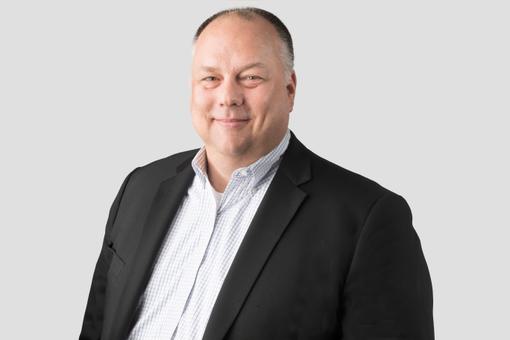Witt O’Brien’s values the insights of recognized industry experts as society faces the outfall of the COVID-19 pandemic. This blog entry highlights the interview on a podcast series entitled PandemicBuzz launched by Witt O’Brien’s Devin Sirmenis, Managing Director Corporate Resilience. We invited Carlo Parrado Curroswho heads Global Crisis Management efforts at Shellfor a wide-ranging discussion on the company’s approach to dealing with the impacts of the global pandemic on its business, lessons learned, communications strategies and if they believe ‘work from home’ is the new normal firm.
-----------------------------------------------------
A Global Coordination Team Versus a Global Crisis Management Team
Shell has offices and operations in multiple countries around the world, in a landscape where each region has responded very differently to the pandemic, with wildly differing results – Europe versus Africa versus South America. To ensure a ‘crisis management capability’ that can account for regional nuances and country differences is in place – Shell established a group (global) coordination team, versus a group crisis management team. While the coordination team applies the methodologies used to manage crises in Shell, a formal mandate was given to each individual country chair (the most senior person in a given country) to make sure they can take positions suited for local conditions.
This adaptive leadership allows country chairs to lead through local circumstances, with the global coordination team there for additional support and application of global resources. So, in the case of COVID-19, the global methodologies are in place to create consistency in the guidelines provided to Shell leadership, while at the same time providing autonomy to country chairs to make decisions based on country-specific circumstances. This balance between oversight and sovereignty has never been more critical than it is now during the pandemic.
Today, Tomorrow and The Great Beyond
Shell is well known for thinking in scenarios. The company is always looking at ‘the most likely’ scenarios but, also the ‘worst case’ scenarios, both of which are plotted across a short, medium and long-term timeframe. These scenarios are then translated into workstreams and actions that would be needed to address the impacts of events from these scenarios. This provides the opportunity to really anticipate what may come, and to also be prepared should anticipation become reality. This anticipation is the key to moving through situations with success and resilience.
Business Continuity Plans Over Pandemic Plans
Shell is conducting ‘lessons learned’ sessions right now. One of the key lessons is around business continuity planning, in relation to the pandemic. Mike Tyson used to say, “everyone has a plan until you get punched in the face.” The COVID-19 punch landed because no one was seeing what the true worst-case possibilities were at the onset of the pandemic. In addition, the duration of COVID-19 impacts extended beyond the timeframe in most pandemic plans, shifting emphasis back on to business continuity plans. You have to have the flexibility to adjust your business continuity plans based on what you are seeing, what is materializing. You have to be quicker in your response sometimes. Shell now has a dedicated business continuity workstream in place to organize and implement the lessons learned to date. The COVID-19 pandemic is unique in so many ways – a once-in-a-lifetime-event. There is a tremendous amount of lessons to be learned still – these lessons must become part of your organizations plans moving forward in order to be ready for what awaits you in the future.
Communications Strategies
There are several key communications strategies that have already proven useful. A few are listed below.
- Two-way. Communication is a two-way street. In many organizations, information flows out from group/global to individual regions and countries. Or, from headquarters to regional offices. In a time of day-to-day change across the globe, it’s imperative that the group/global level leadership teams listen to individual country chairs and their leadership teams to understand how the situation is evolving at the local level. In turn, this provides group/global with the ability to ask thoughtful questions about what local leadership needs in terms of guidance and resources.
- Fact-based. There is no room for speculation. Facts, especially the use of scientific evidence during the pandemic, need to help structure the flow of information and communications.
- Consistency. Messaging needs to be consistent. This will lessen confusion and better connect words to the actions that need to be taken.
- Repetition. Repeat your message. Do not believe that if you tell people only once, they will understand. So, repeat the message as many times as necessary so that everyone understands what the company wants to achieve.
- Values. Core values should structure leadership communications. Core values should already exist and be consistent across every region. Use these values to shape your core messaging. Shell keeps their core values of honesty, integrity and respect at the forefront during crises.
It’s Not a Desk, It’s an Office
It is too early to say if working from home will be a permanent element for all of the workforce. The office is more than just a desk to work at. Apart from the formal communications received there, the office is a place where you can meet your peers, colleagues, customers, and clients. The office is where ideas are shared, where you can have your informal communications, have coffee or lunch – all of which helps build the type of culture you want to have in your organization. Each company will have to choose for themselves how they return to work and what value they place on remote and formal offices.
Health of your Customer Relationships
No matter the size of your company, building strong relationships with your clients is paramount to overall success. But, now that COVID-19 has grounded business travel and put the brakes on face-to-face meetings, organizations must find a way to keep client relationships strong in a world without handshakes, office visits or in-person meetings. The whole situation asks for a different approach. Shell has about 60 crisis management teams all around the globe and country chairs that are primary customers – from a group crisis management perspective. What has held up very well under the pandemic are the relationships group crisis management has worked very hard to establish with these stakeholders. Group is now available to its stakeholders as a resource in different ways, using tools to continue these connections virtually but, with our customers knowing they can rely on us because of the foundation that had been established and maintained over time.
The Three ‘Ps’
Prepare, Predict, Prevent. Becoming better at anticipating is about becoming better at identifying risks and threats and how they can manifest in different scenarios. Once you and your team have thought through these, discuss these scenarios inside and outside of your organization, try to get an outside-in perspective, and remember to view them at the country as well as the group/global level.
-----------------------------------------------------
Please listen to all our PandemicBuzz episodes on one of your favorite platforms:
Witt O’Brien’s looks forward to the opportunity to guide our clients. Please contact us if you would like to discuss your company’s approach to managing this crisis, need support to do so, or if you would like to brainstorm next steps.

Devin Sirmenis is a risk and crisis specialist focused on corporate resilience and has served clients for 20 years as a trusted advisor. Devin works with executive leadership at Fortune 500 firms to assess and develop their crisis management programs, train crisis leaders, and stress test the ability to manage an enterprise threatening crisis through simulations. Prior to joining Witt O'Brien's, he led consultant programs at Deloitte, Booz Allen Hamilton and Perot Systems Government Services. Devin pairs his years of client experience with continuing education and has completed Harvard Kennedy School's Crisis Leadership Program and holds a Change Management Advanced Practitioner certification from Georgetown University McDonough School of Business.
